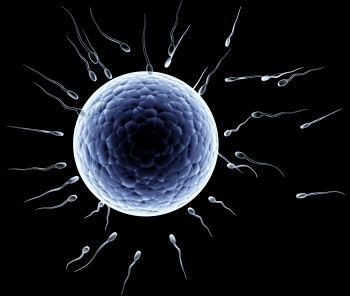 Infertility is an important clinical problem, with around one in seven couples having difficulty conceiving. There are many possible causes, and abnormal semen accounts for around 40–50% of infertility. This includes conditions such azoospermia, where sperm is absent in the semen, and oligospermia, where only a very low concentration of sperm is present.
Infertility is an important clinical problem, with around one in seven couples having difficulty conceiving. There are many possible causes, and abnormal semen accounts for around 40–50% of infertility. This includes conditions such azoospermia, where sperm is absent in the semen, and oligospermia, where only a very low concentration of sperm is present.
Although there are many treatment options for infertility, further work is required to identify the underlying causes in order to uncover new therapeutic targets and risk factors. In a research article published in BMC Medicine, Guixiang Ji and colleagues discovered a number of new genetic risk factors for male infertility.
 The authors focused their studies on DNA mismatch repair genes, which have a critical role in the maintenance of sperm DNA. Defects in sperm DNA are known to be involved in male infertility, but the cause of such problems is poorly understood. Ji and colleagues showed that single nucleotide polymorphism genetic alterations in the mismatch repair genes MLH1, PMS2 and MSH5 are risk factors for azoospermia and oligospermia. The authors also identified a number of genetic changes responsible for sperm DNA damage in men with normal sperm counts, which could confer risk of infertility.
The authors focused their studies on DNA mismatch repair genes, which have a critical role in the maintenance of sperm DNA. Defects in sperm DNA are known to be involved in male infertility, but the cause of such problems is poorly understood. Ji and colleagues showed that single nucleotide polymorphism genetic alterations in the mismatch repair genes MLH1, PMS2 and MSH5 are risk factors for azoospermia and oligospermia. The authors also identified a number of genetic changes responsible for sperm DNA damage in men with normal sperm counts, which could confer risk of infertility.
Together, the results indicate that genetic alterations in mismatch repair genes increase the risk of male infertility. The findings increase our understanding of the role of genetic factors in sperm DNA damage, and could have important implications for analysing the success of assisted reproduction. In the future,  this research should be extended to look at the interactions between different genes, as well as between genes and environmental factors that could also influence the risk of male infertility.
this research should be extended to look at the interactions between different genes, as well as between genes and environmental factors that could also influence the risk of male infertility.
2 Comments